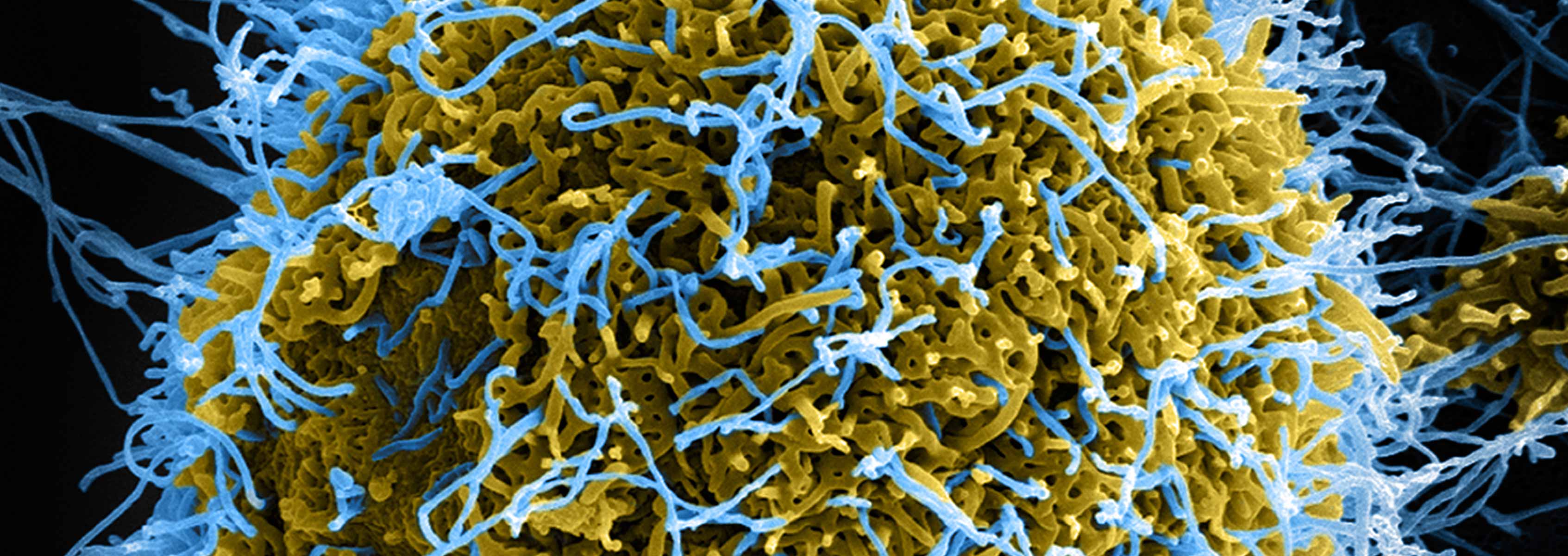Genomics of Marburg and Ebola Viruses

Filoviruses, such as Ebola Virus and Marburg virus, are examples of agents that induce hemorrhagic fever (VHF) and can result in high mortality (up to ~90 percent). Both Ebola and Marburg viruses and closely related strains cause severe diseases in humans and nonhuman primates. All the members of Filoviridae are select agents, Risk Group 4 Pathogens (requiring BL4-equvalent containment), and Category A Priority Pathogens. Filoviruses are negative sense RNA viruses in the order Mononegavirales and as the order delineates, the genome is single stranded negative sense RNA that is ~19 Kb in length. The increased frequency of outbreaks of hemorrhagic fever caused by Ebola-like strains in central and western Africa and the potential use of such agents as biological weapons underscore the need to understand pathogenesis of these viruses and to develop effective vaccines and antivirals.
This project generated complete genome consensus sequences for filovirus stocks, and was capable of identifying any contaminating pathogens in the existing stocks--including other filoviruses strains. Additionally, the study allowed novel insight into the role that multiplicity of infection (MOI) plays on the diversity of strains during passage in culture, while simultaneously providing knowledge about the level of nucleotide and amino acid variation within the virus population.
Funding
This project has been funded in whole or part with federal funds from the National Institute of Allergy and Infectious Diseases, National Institutes of Health, Department of Health and Human Services under Award Numbers N01-AI30071 and U19AI110819.